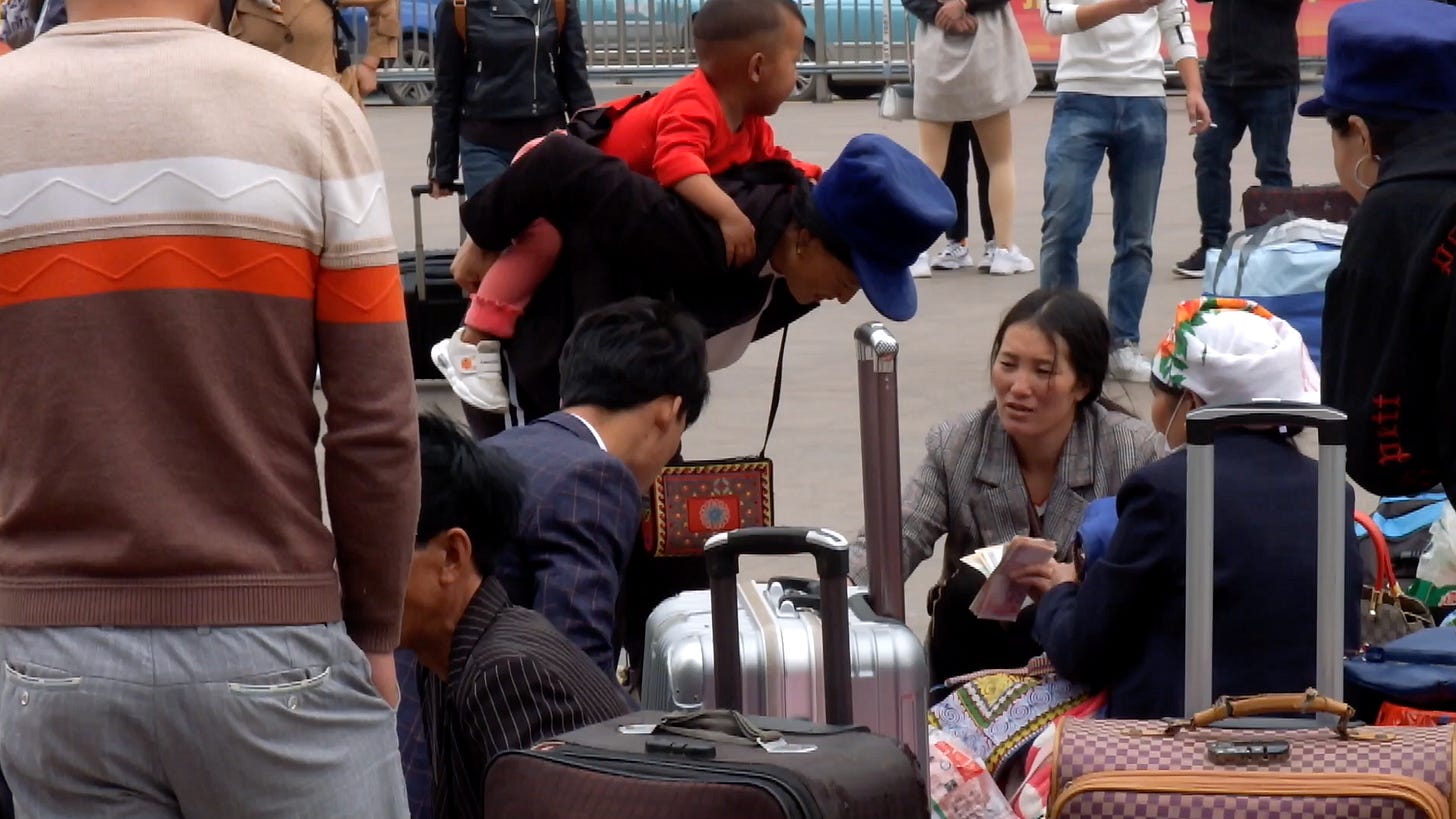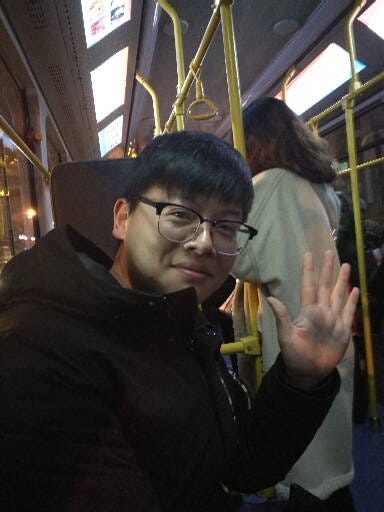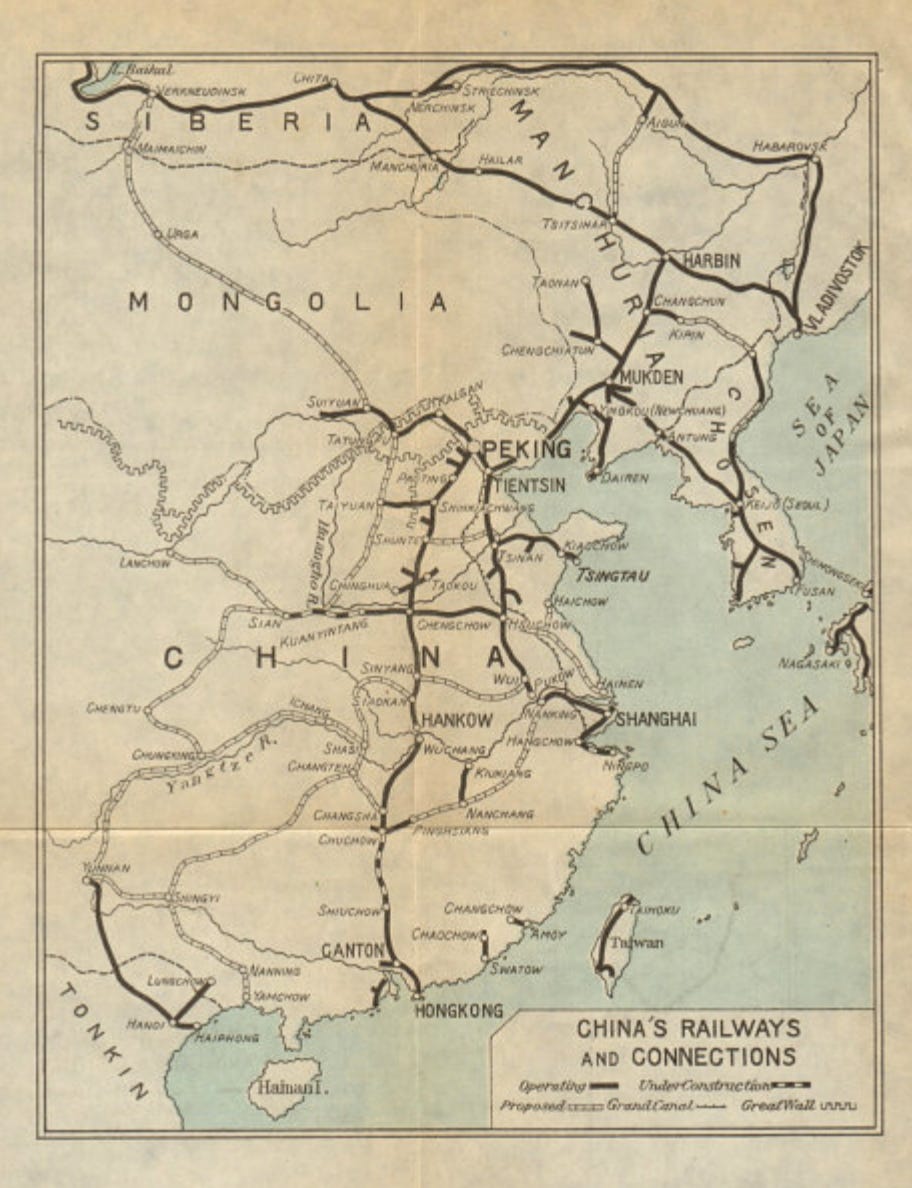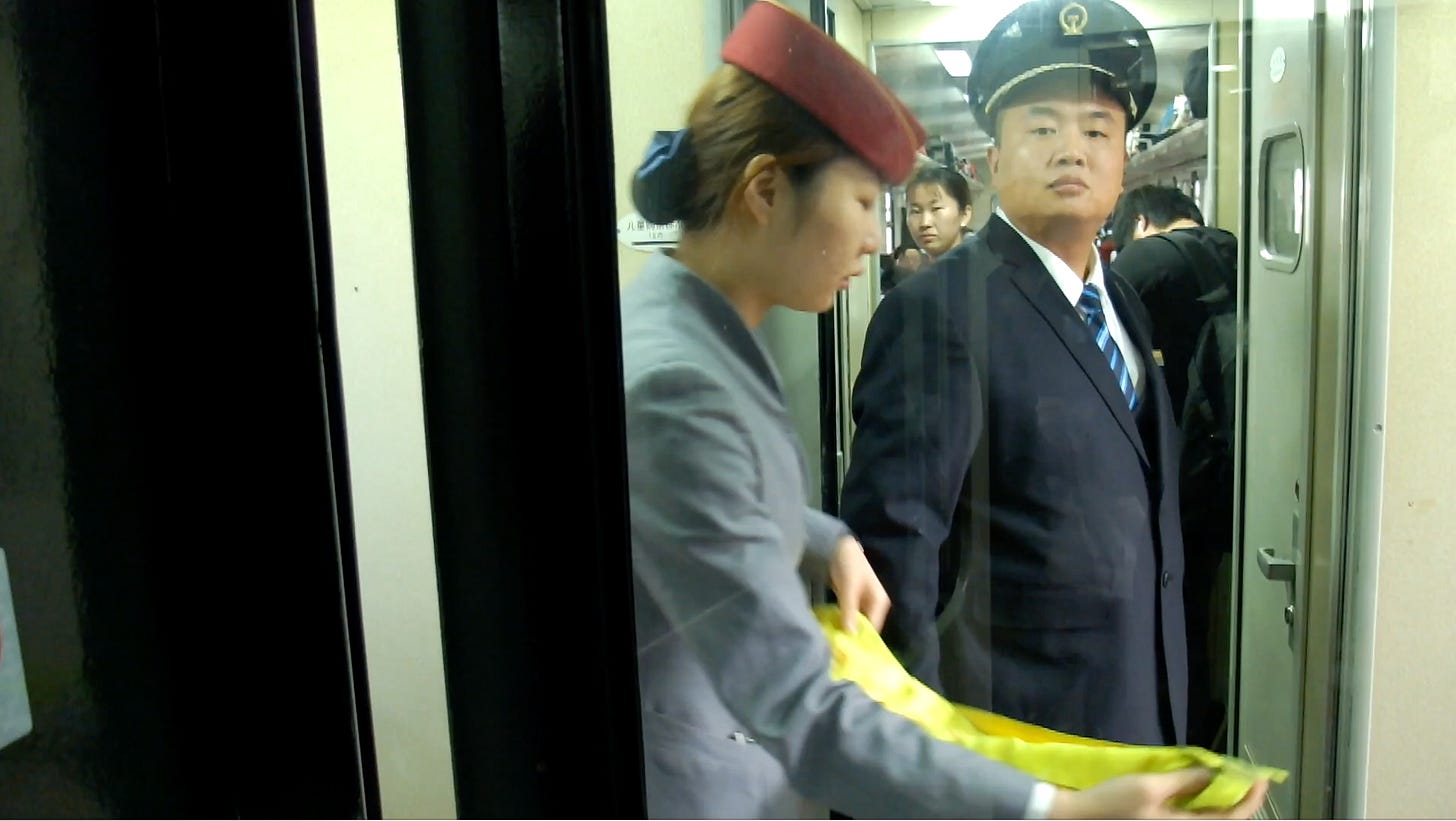Daydreaming in May, UK,
from our new green sofa that feels like sinking into the sea, whilst looking obliquely out of the window at the railway not so far off. We live at High Brooms, the bottom of the town, perhaps named because chimney sweeps lived here and made their long-handed brooms when once upon a time chimney and hearth were an integral part of a home. Of course, I am not sure of this, I actually made it up, yet, this is the story I like to tell visiting friends. (No one is really sure of the origins.)
On the hour and half-hour trains pass by to the big smoke - London - or the seaside at Hastings. I feel the train rock the house, then wait for the whistle as it dives into Strawberry Hill Tunnel. Daydreaming in May, I think of the last ever train journey I took in China from Jinan to Qingdao in Shandong Province. I litter the sofa with my photos, stories float in my mind, touching my soul and teasing me, letting me believe that I am back there.
The doors are shut tight now to China,
invisible arms wrapped around this country which has pivoted on extremes for decades. Not easy to get in, not easy to get out. I am sad. It was my home for six years. It was a way of life for longer than I lived and worked in Europe. I miss it very much. My home.
I keep in touch via WeChat with my Chinese family, my artist friends Wake Li and Tao Gu, and my students. Some managed to leave. Some want to leave, others stay. My dear Anna - Tihui Li, student from film school - made it to Canada. She is in Vancouver and has started work for a new film production company. We speak often. She was only 21 when I met her. She is now 28. She has not seen her family since 2019 and does not know when the next time will be. Covid, shut doors, and politics dividing many of us.
I have one piece of video I shot as I waited on the green train (workers’ train), to go back to Qingdao sea.
I finally locate it.
Here is the story …
It is November 2019, life is beautiful,
even though I have just had my brain opened up six weeks prior, and a tumour removed, I am grateful to life.
My film, THE SEA HUT, won first prize at the TV and Film Academy Awards in Jinan, China, and I have spent the weekend here, courtesy of the Film and TV University. An incredible weekend into the heart of Chinese academia, and now I am getting off the bus at Jinan railway station.
Jinan is a smooth and watery city, the city of bubbling springs, about 350 miles from Qingdao. It is also a clever city, noted for being important for scientific research, abounding with learning centres and housing the Confucius Institute-University of Jinan

I have two choices to travel home. I can go by fast train which takes three hours or the lupiche - green-skinned- train built in the 1950s by Mao’s government. This will be around seven hours at a fraction of the price. These slow, heavy, solid green-metaled trains which clatter over hill and mountain, out to the desert, to the sea, were once all there was, bringing the whole of China together. I imagine them as an accordion swaying over the country, like a train-shanty.
I have no need to rush. I have all the time in the world. Chinese people speak about the lupiche in a mythical sense, with nostalgia, a must-do-thing. Entire books have been written about the train and Qian Haifeng, a Chinese national has spent decades tenderly photographing passengers, travelling the entire train network for his project.
A young man on the bus in to the station who speaks lovely English tells me I MUST, MUST take the lupiche. “This is one of the last green train services on your route.” He helps me buy my ticket. I am really excited. “Do not buy food or drink, there will be ample sellers on the train.” His English is so perfect and measured. He glides off like a ballet dancer to take his fast train to Qingdao.
Back on my sofa,
Covid and the bullet train, which can travel at 600 kilometres, have all but destroyed this old way of travelling. Only 81 green train lines are left. The most famous is Train 8324 in central Henan province which takes three hours to run a 100 mile route. The slowest on the entire route.
But then, in November 2019
as I sit outside the station people watching with my lupiche ticket I think of the quote by Somerset Maughan in his book On a Chinese Screen.
“I have a notion that by travel I can add to my personality and so change myself a little. I do not bring back from the journey quite the same self that I took.”
A slice of history
During the 1850s - 80s China, unlike India and other colonial touched countries, had very bad transportation. Carts, horse, pack-mule, the canal systems and walking were the ways most people navigated around the country.
The British wanted to try and build railroads; however there was huge opposition from locals, farmers and agricultural communes as they believed it was bad Feng Shui (wind-water). A straight line and metal rails let the “qi” energy move too quickly, so curves had to be added bringing unnecessary work and mileage to the tracks. Then there were the thousands of burials mounds which held memories of ancestors, which we can still see today in rural China, buried all over the land. Finally, to add to the woes of the British, “this machine, like a bad dragon spewed smoke and spat water”. (Wang Ying remembers his great-grandmother saying this ). There was fear this beast would take away jobs, bring unemployment in its metal wake, as all carrying and lumbering up to this point was manual.
However, as always, some Chinese were excited by the commercial advantages. The Chinese ambassador to the UK, Guo Songtao , an advocate of railways, was impressed by the high speed of the British train - 30 miles per hour! He was fundamental in being able to get the two sides to meet half-way.
From the laying of the first 50 miles in the port of Tianjin to Tangshn in 1880, there was no turning back. Over the decades, wars, revolutions and the opening up and closing of the country, the Chinese railway has stretched its spindly train-tracked- webs outwards, with an adventurous plan for the Belt and Road - 带一路, a global infrastructure which will bring the railway across from Xinjiang to Europe, reviving Marco Polo’s spice route.
I found my seat but could not sit
I wandered up and down taking in the air, taking in the sights, the sounds, the smells. As if I knew unconsciously this was going to be my last train home, the last ride back east, the last chance to sit with jugglers and strangers and basket weavers and young lovers, and jilted lovers, cross husbands and tired wives, and happy husbands and laughing wives, children singing, dancing, screaming, eating, eating, constant chatter, then eating once more. Squashed between families, high on exhaustion and expectation, as this was maybe their second, third or fourth train ride until their destination, I soaked it all in.
My camera is old and battered, in the winter of its life. It also is its final journey. (Of course I did not know all this then.) It was my dear friend during the two weeks in Qingdao hospital where it was dropped, passed around to doctors and nurses, and pocked into every crevice of the hospital it could get it’s nosey lens into.
I manage to get it to work, miraculously.
I do not want to film, there are times when it is best to keep the memory in the mind, but for some reason, I am pushed to do so. Chinese people do not mind the camera at all, this is a paradise for documentary filmmakers. It is simple, a no is a no and a hand goes up. Watch The Slow Train Home trailer - a documentary on a young couple going back to visit family during New Year, for the incredible access to life on the green train, by Lixin Fan.
Slowly moving through the late afternoon,
until night, I am capturing my last images. Had I known that one week later I should be coming back to Toulouse, France, via Munich, Germany where I promised to never fly again in winter, as the tiny plane tipped and tilted into the wild winds, crash-landing over the tarmac at Toulouse airport. Then Covid, stealing two years of the world’s time, that my flight back home would be cancelled in early January 2020, that China would close its borders for years to come. Had I known that then as I walked up and down the carriages, I would have cried my heart out, tempted to not come home, knowing I could not get back to China, and then crying my heart out again for not being able to get back home to Europe had I stayed.
I stare out of the window as night falls, the train opposite me begins to slide past. I watched the lupiche opposite me. I was being offered a seat at the movie Rear Window. Other lives in front of me, the carriages getting ready for slumber, men playing cards, until it starts to slip away, slowly and gently into their future. I stood alone between two carriages as we slowly rocked. I agree with Somerset: “I do not bring back from the journey quite the same self that I took.” I take my old battered friend, and film my last images I will ever will in China, for now.
Let the camera roll …
Have a wonderful week ahead as we are just around the corner from summer
If any of you are interested in film production, scrapbooking and digital storytelling, go to my website at scatterflix where you will find tips for making your first documentary.
Coming soon a Udemy course in “how to get started making your first documentary EVER”
Have a wonderful week ahead as we are just around the corner from summer.













I loved reading your story, and am so sad for all the loss covid has created. Your longing for China comes through so viscerally in this. Thank you for sharing.
Thank you so much Dominic, Merci